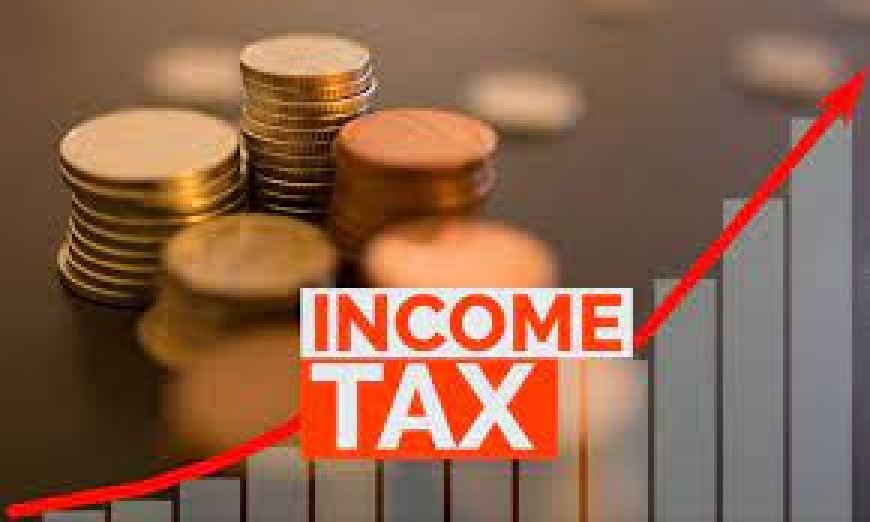What Is Income Tax and Why It Matters for Every Salaried and Self-Employed Individual in India

Income tax is a term that every salaried and self-employed individual in India encounters on a regular basis. Whether you’re an office employee or a business owner, understanding what is income tax and its relevance to your financial planning is critical. Income tax is a tax levied by the government on the income earned by individuals and entities within its jurisdiction. For many of us, this tax is not just a financial obligation—it’s also a tool to contribute toward the country’s development by funding public services such as infrastructure, healthcare, and education.
Besides fulfilling civic obligations, managing income tax efficiently can save you from penalties and allow you to take advantage of deductions, exemptions, and credits that help reduce your taxable income. This article delves deeper into what income tax is, its importance, and how individuals can benefit from understanding exemptions like 80CCD 2, as well as opportunities like home loans for further financial growth.
Understanding Income Tax in India
Income tax is governed by the rules set forth in the Income Tax Act, 1961, which prescribes how income is classified and taxed based on its source. The government categorizes income under different heads like salaries, profits or gains from business and profession, house property, capital gains, and income from other sources. Every salaried individual pays tax on their earnings, while self-employed individuals declare their earnings under profits or gains.
Income tax is progressive, meaning the higher your income, the higher your tax liability. As of 2023, India follows slab rates for individuals and provides additional rebates and exemptions to ensure taxpayers can manage their finances wisely.
Why Income Tax Matters for Salaried and Self-Employed Individuals
Income tax is directly tied to your financial health. For salaried professionals, it involves calculating monthly paychecks after deducting tax at source (TDS). For self-employed individuals, it includes assessing annual income, preparing financial statements, and submitting returns accordingly. Filing and paying income tax is a mandatory responsibility, but when done strategically, it can lead to significant long-term benefits.
Here’s why income tax matters:
-
Legal Compliance: Filing tax returns every year is mandatory for individuals with taxable income exceeding the exemption limits. Non-compliance results in penalties and legal consequences.
-
Financial Planning: Knowing your tax liability enables better budget management and provides a clear picture of savings, investments, and expenditures.
-
Access to Loans: Your Income Tax Return (ITR) serves as proof of income when you apply for loans like a home loan through trusted providers such as Bajaj Finserv.
-
Investment Growth: Tax-saving instruments like deductions under 80CCD 2 and Section 80C encourage individuals to invest systematically, ensuring dual benefits of savings and wealth creation.
Tax Exemptions and Deductions That Can Lighten the Load
Taxpayers have access to various provisions under the Income Tax Act designed to reduce their taxable income. One of the valuable benefits applies to contributions made to the National Pension Scheme (NPS). Under Section 80CCD 2, the employer’s contribution to an NPS account is eligible for tax deduction up to 10% of salary for private sector employees and 14% for government employees. This deduction is over and above the limit prescribed under Section 80C.
Similarly, salaried employees can save tax through provisions like housing loan interest deductions under Section 24(b). Self-employed individuals can set off business expenses, thereby reducing taxable profits. Overall, understanding such exemptions helps everyone achieve significant tax savings while planning their finances.
Benefits of Home Loans and Income Tax Implications
Applying for a home loan not only fulfills your dream of owning property but also provides tax benefits. Home loans from reputed providers, such as, are powerful financial tools for individuals seeking a blend of affordability and convenience.
Key Benefits of Home Loans:
-
Tax Savings: The interest paid on home loans qualifies for deductions under Section 24(b), allowing taxpayers to claim up to ₹2 lakh annually. Repayment of the principal amount is deductible under Section 80C for up to ₹1.5 lakh annually.
-
Low EMIs: Many lenders offer attractive interest rates that lead to manageable Equated Monthly Installments (EMIs).
-
Flexible Tenure: Borrowers can choose repayment tenures ranging from several years to suit their budgets.
-
Owning Property: A home loan enables salaried and self-employed individuals to secure their dream home without depleting their savings.
How to Apply for a Home Loan
Applying for a home loan through providers like is simple if you meet the eligibility criteria. Here's a step-by-step process:
-
Check Your Eligibility: Visit the lender’s website to check the eligibility criteria, including income, age, credit score, and employment type.
-
Calculate EMIs: Use the EMI calculator provided online to choose a loan amount and tenure that fits your repayment capacity.
-
Submit Documents: Prepare essential documents such as identity proof, address proof, income proof (ITR, salary slips), and property details.
-
Apply Online: Most lenders, including Bajaj Finserv, offer digital application processes for convenience and faster approvals.
-
Assess and Approve: Once submitted, your application will be assessed by the lender. Keep your phone handy for verification calls or updates.
Conclusion
Understanding what income tax is not only aids salaried and self-employed individuals in India to fulfill their legal obligations but also opens up multiple opportunities for savings, investment, and wealth creation. Using deductions such as those under 80CCD 2, planning smartly for returns, and leveraging financial tools like home loans ensure optimal financial health.
Whether you’re seeking tax savings or planning homeownership, a well-informed approach to managing your finances can secure you a brighter future. From income tax to personal loans, the financial system in India offers ample resources to ensure your fiscal growth is never compromised. Take advantage of every deduction, exemption, and financial tool at your disposal. It's not just about paying tax—it's about planning for life.
What's Your Reaction?




























































